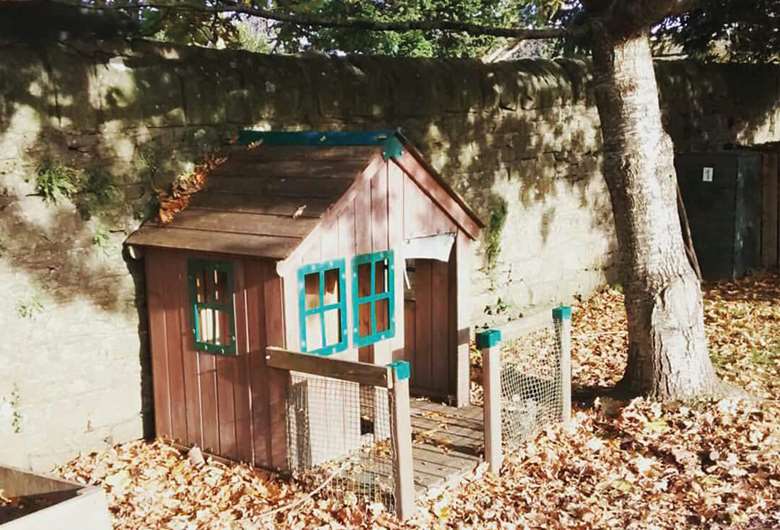A final farewell to our pre-school
Emmie Short
Monday, January 23, 2017
Following the recent closure of Kirkgate Pre-School in Cumbria, former staff member Emmie Short remembers what made the setting so special, and explains why it was forced to shut down

On Friday 4 November, after 47 years, staff at Kirkgate Pre-School said goodbye to children one final time. A couple of days earlier, we discussed how we would handle this moment. We agreed we would follow the children out and close the door behind us. We would begin the process, not of tidying up at the end of the week but of packing up forever, later in the day when we felt we could face it.
Parents found the closure a shock, but the writing had been on the wall for some time.
Pre-School, which evolved from a playgroup started by two Quaker parents in 1969, was still just five morning sessions with an hour’s lunch club four days a week. Staff were mature, experienced and actively committed to the importance of a caring and positive early years environment.
We prided ourselves on low staff turnover and our skill-sharing. We complemented each other, exchanging individual strengths while observing and learning from one another. We had a manager and deputies but no formal hierarchy. The important thing was showing the children they were all interesting and important people.
Training and attitudes have come a long way since I left my oldest child in social services-run daycare 29 years ago, and all those working in the sector now appreciate that inspiring care like that provided at our pre-school cannot be achieved with mere training.
I witnessed, with awe, how a colleague tuned perfectly into the minds of two- and three-year-olds, an ability I had lost, and understood what they were trying to say. I saw how listening without speaking is a highly developed skill. With insight and patience, she let children talk without interrupting them or taking over their schemes.
I hope that after six years my style came to reflect at least some of what she taught me. Staff were always prepared to be surprised and learn from the children, and we saw our role as helping them follow their own ideas.
At the Quaker Friends’ Meeting House, we had the use of two large, airy rooms and the run of a fabulous garden, with secure walls, mature trees, a safe place to climb, and an area for mud kitchen play. We were operating a Forest School approach before Forest Schools were a mainstream ‘thing’.
However, our home wasn’t purpose-built, and access to toilets and kitchen meant staffing needed to be higher than the legal minimum. In any event we wanted ratios so all children got as much attention and support as possible. We knew from our collective experience that this was how children thrived. Staff were devoted, and families trusted us to look after their children, giving them a sense of being valued and loved.
Sadly, love was not enough. We were essentially a relic of a by-gone time when most families didn’t need full-time daycare. We heard from the local authority that similarly run pre-schools were closing, and we realised we were losing increasing numbers of children to schools’ in-house nurseries.
In recent years we benefited from relatively high numbers of nursery grant-funded three-year-olds and some significant numbers of funded two-year-olds, but when numbers dipped we saw a small deficit budget grow alarmingly and overheads rise. Then the gap between income and running costs began to widen too far to reconcile. Nursery grant did not increase in line with day-to-day expenses: training, insurance, rent, wages and materials.
PAPER, STRING AND GOODWILL
We had always run on a tight budget – paper, string and goodwill – but the world was changing. After checking and re-checking, our committee realised that no matter how many children we got, funded or otherwise, we couldn’t break even, let alone make a profit.
If our committee wasn’t going to be left liable for debt, we had to close. As Lisa Muir, our lovely manager, told the local newspaper, ‘It’s a loss not just to the children who are here but to all the families who have used this place over the years.’ Seven staff were made redundant and all our families had to make alternative arrangements. A group of parents wanted to explore alternative funding but soon saw there wasn’t a sustainable way to carry on. Even commercially run daycare nearby is reporting significant financial problems with the level of funding.
Early years provision should be horses for courses. Not every setting suits every child or family. Parents have differing needs for hours and early years approaches – we knew that. Our philosophy about formal learning was to go at the child’s pace, looking for signs that they were ready, and parents came to us because they made a decision it was what they wanted.
Our sadness about the demise of our pre-school is not just because of the loss of our collective experience and skill but because it diminishes the variety in the early years eco-system. Skill-sharing wasn’t just between colleagues in our setting but wider, into the local community, with parents, carers and families and other settings, through local training and when children moved from one setting to another.
Many people have said to me, ‘I’m so sorry to hear about pre-school. I went there/my child/my grandchild went there’, telling me about their memories. Its closure feels like what it is: a bereavement.
In a few weeks we’ll have a small ceremony, putting a time capsule in the garden we loved so much. It will have the names of the last staff and children to attend, written accounts, photos and pictures.
Like us, the Quakers treasure the garden and it’s also their own burial place. Funnily enough, the children never bothered about the gravestones and I used to hope those ‘resting in peace’ would have been delighted to know children played around them.
Now there are no children’s voices in the garden or sounds of new life with the remains of old. For me and my former colleagues, this is the hardest part.





